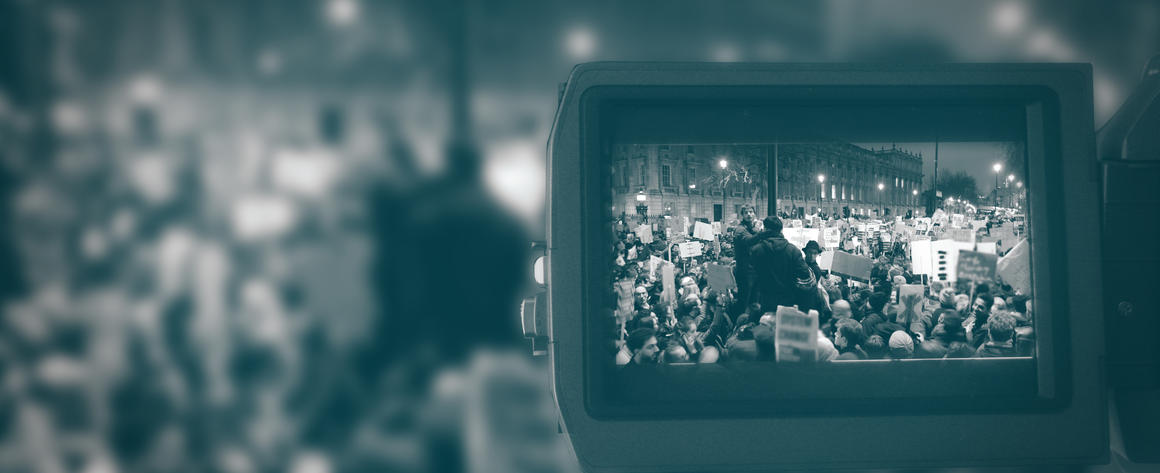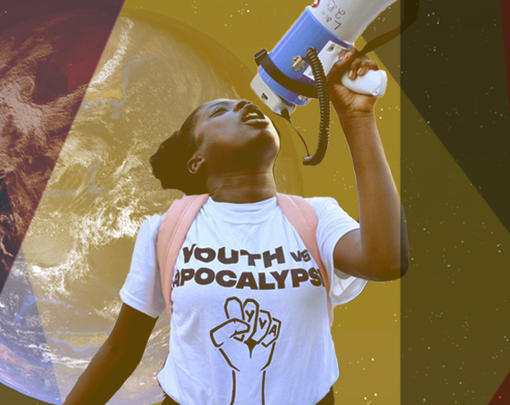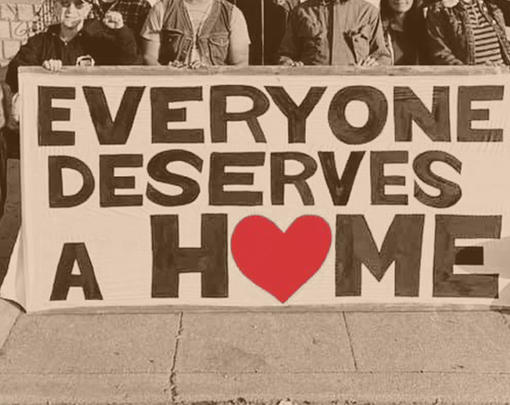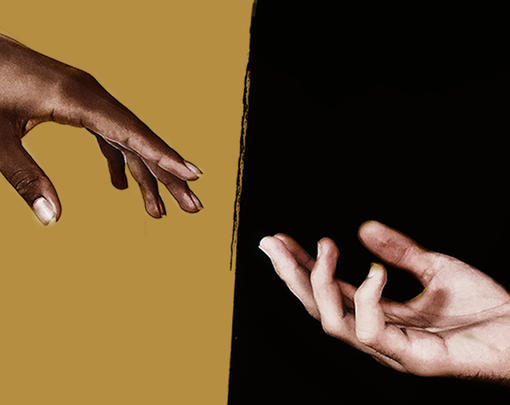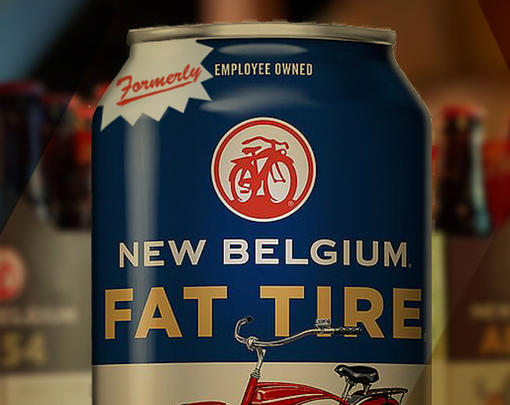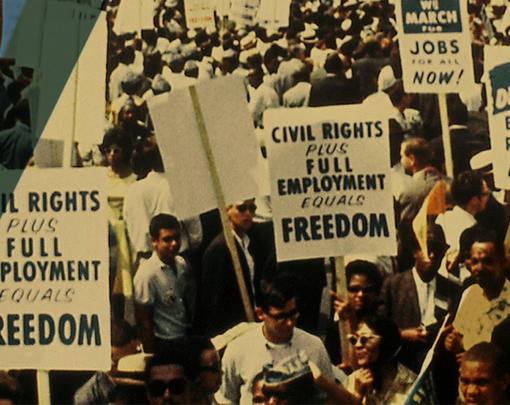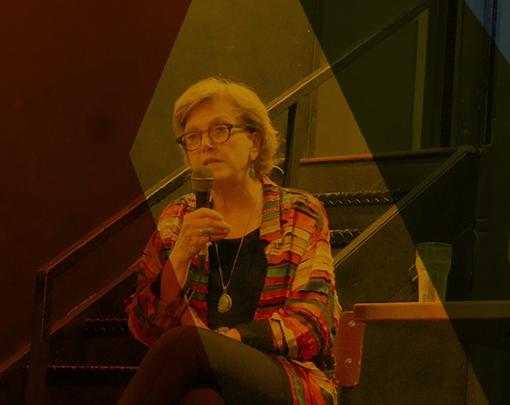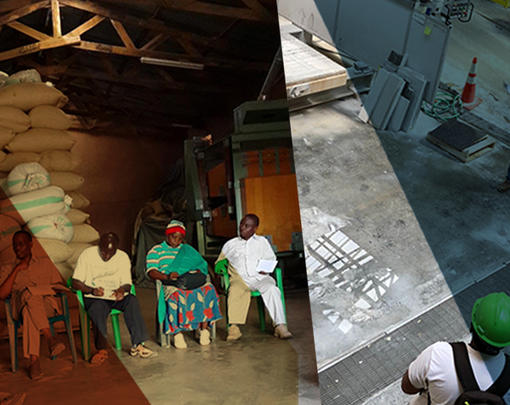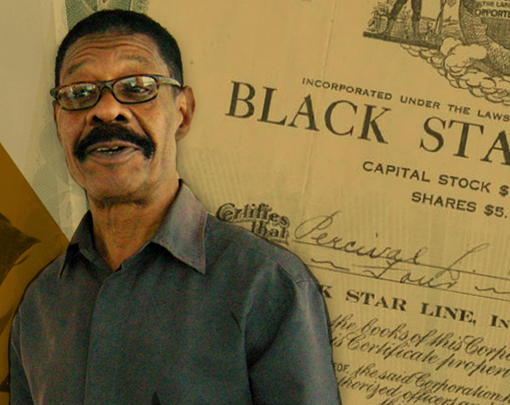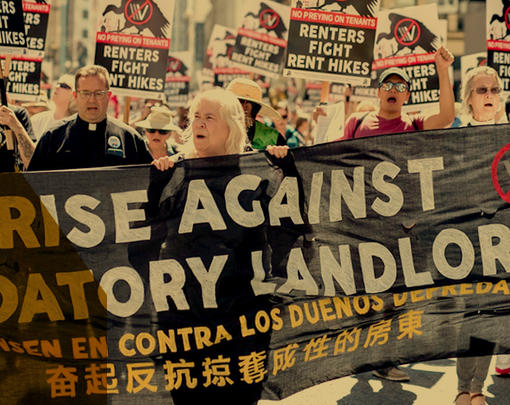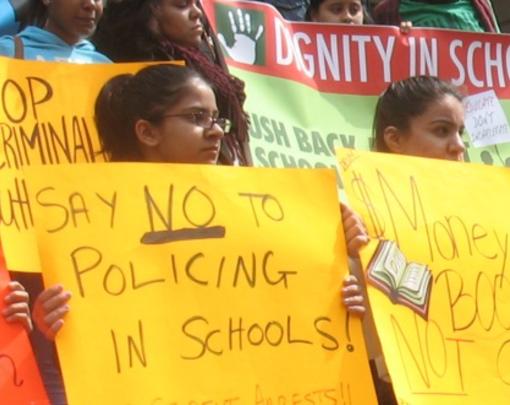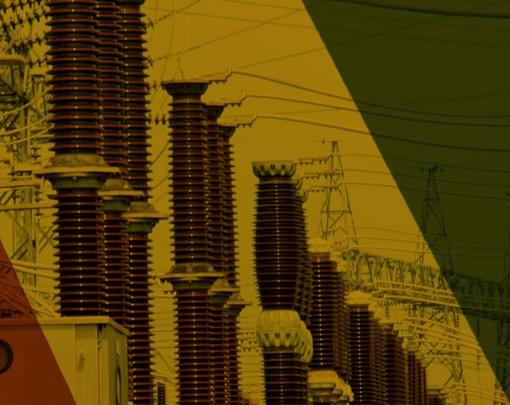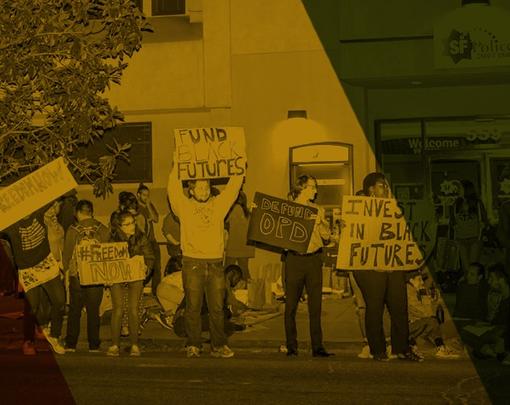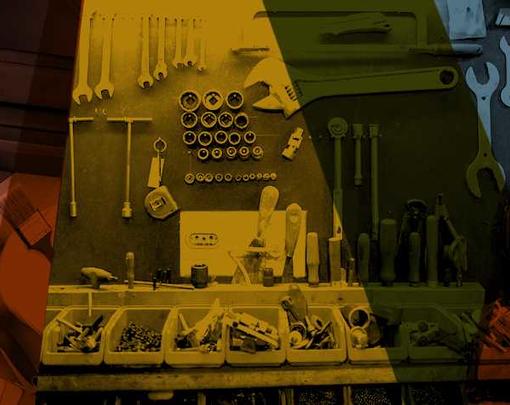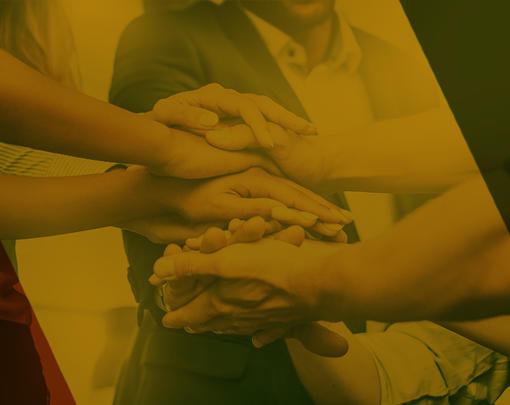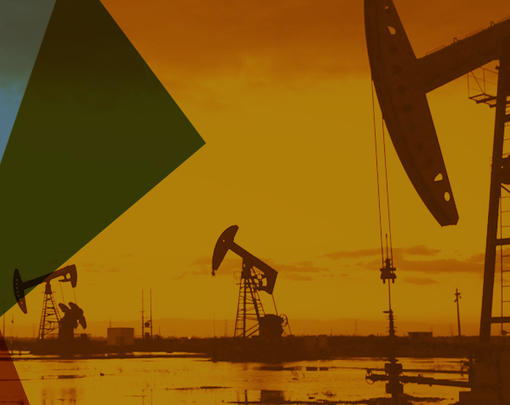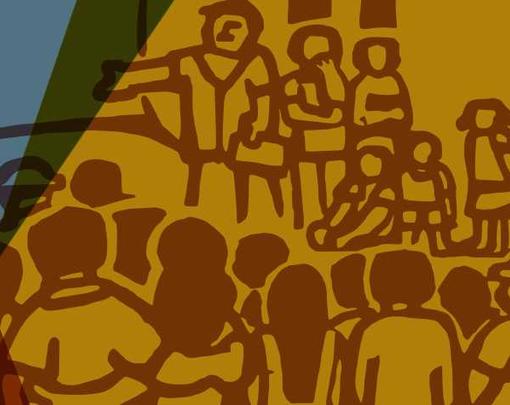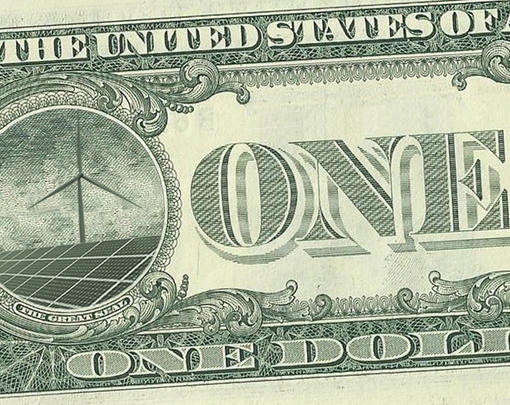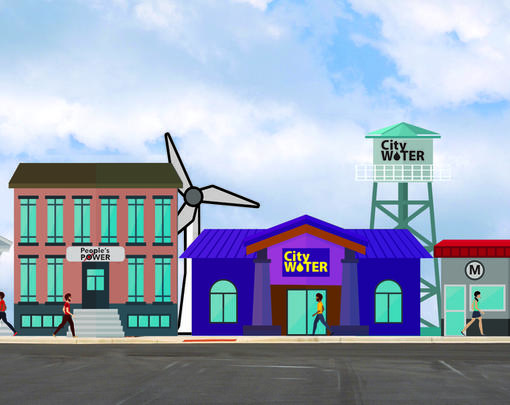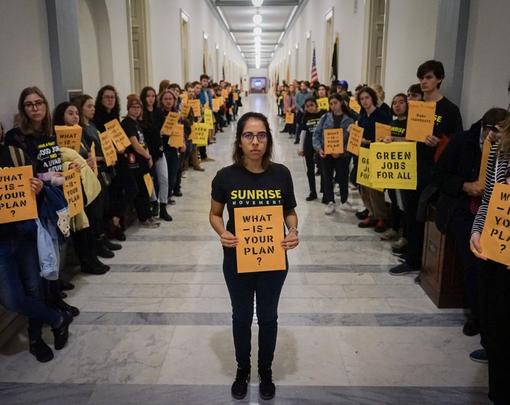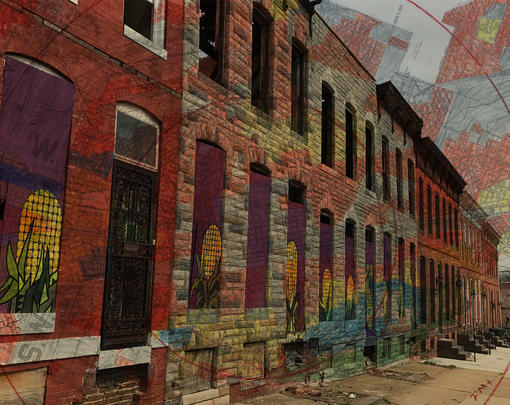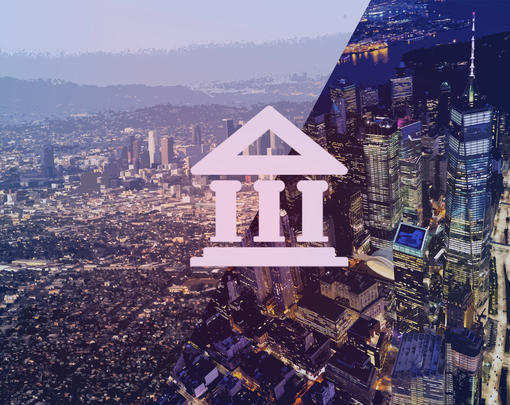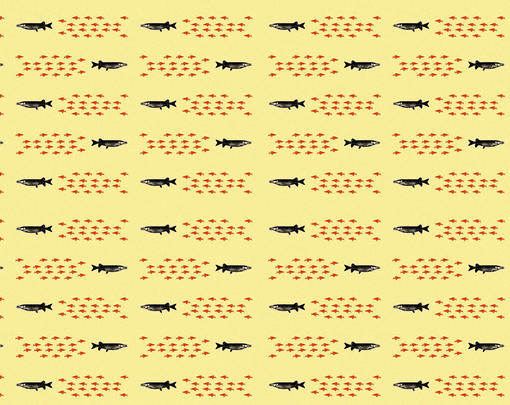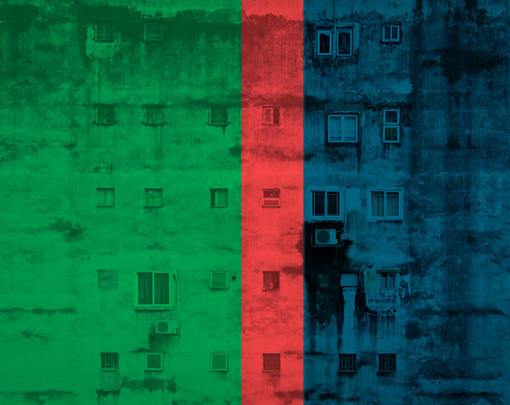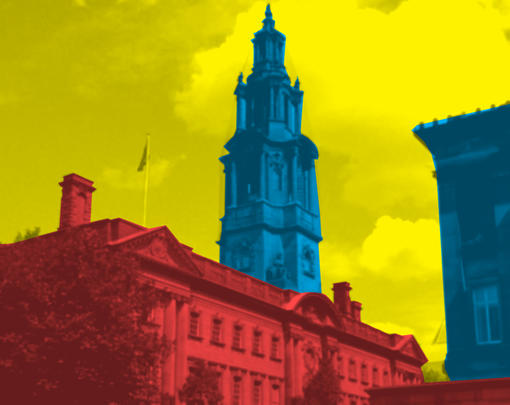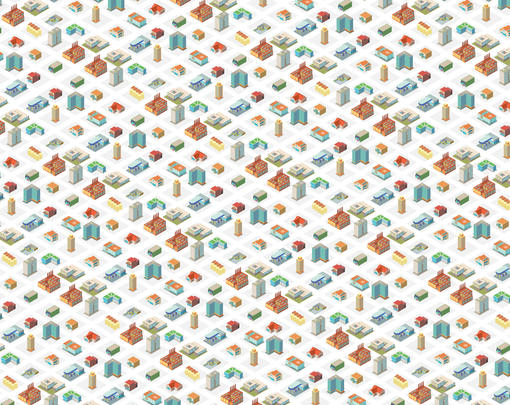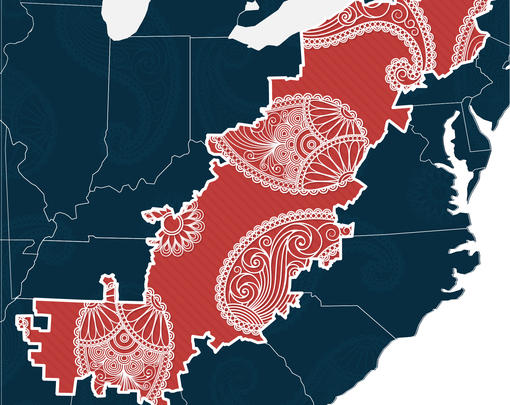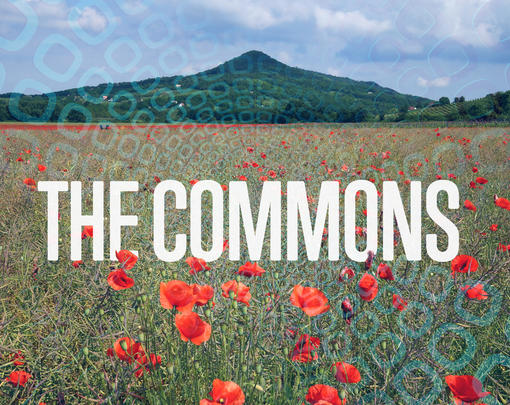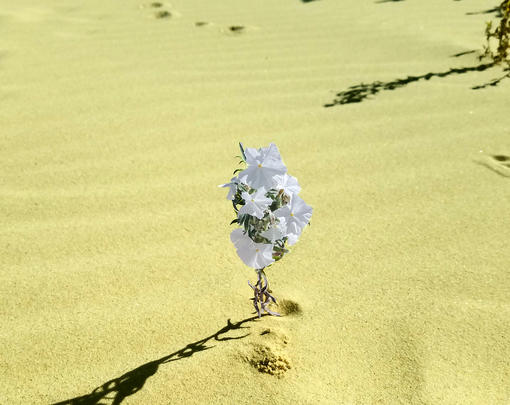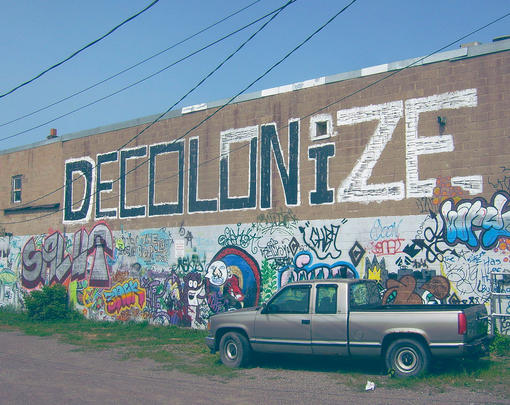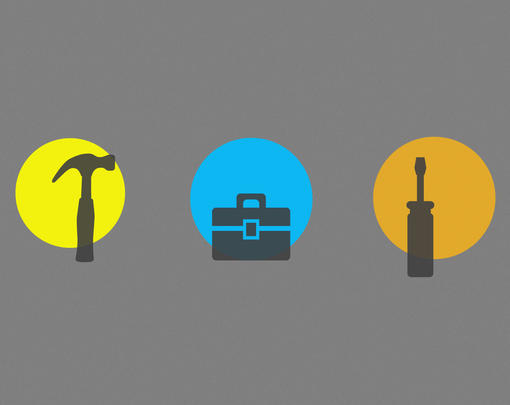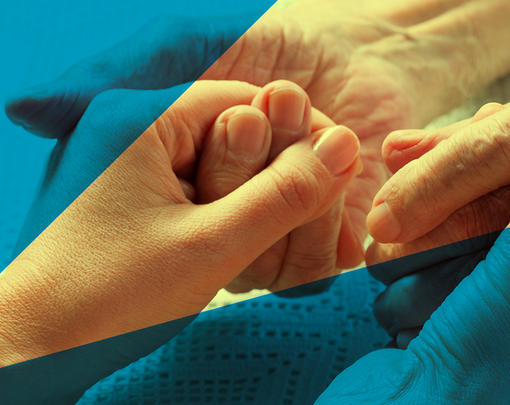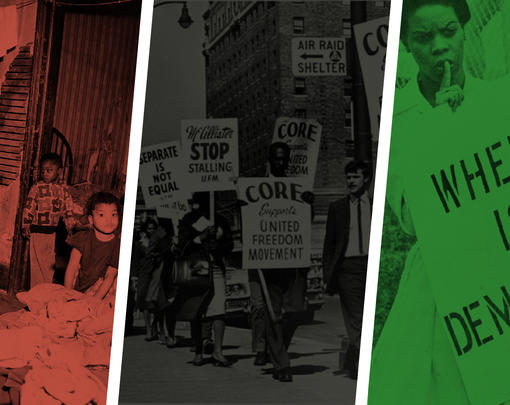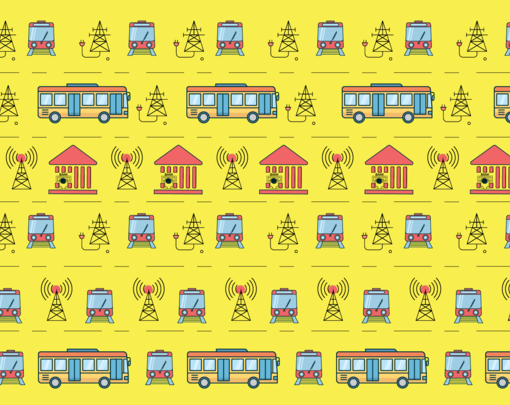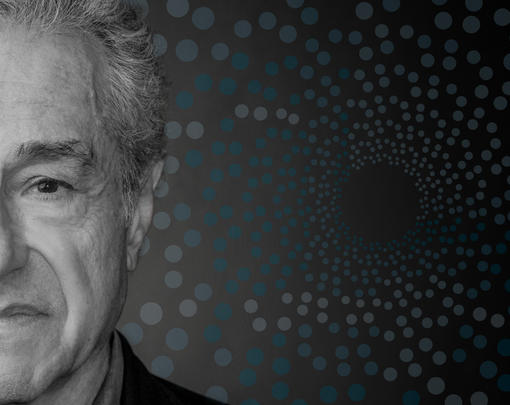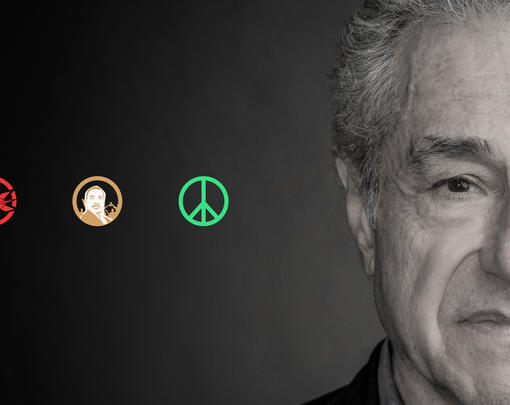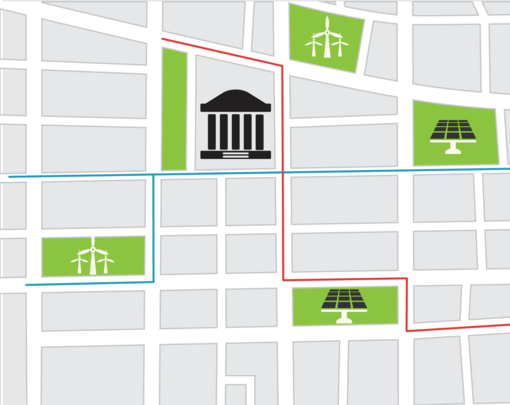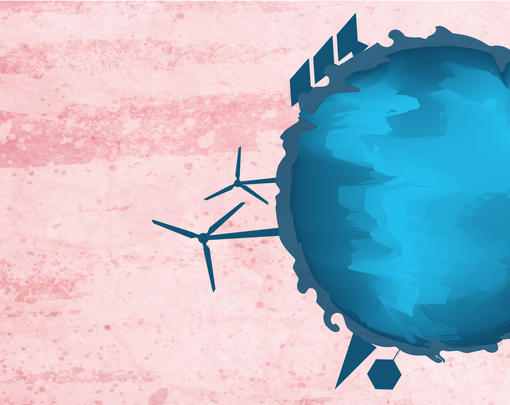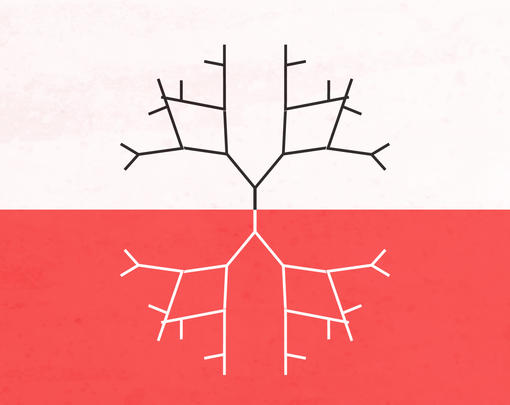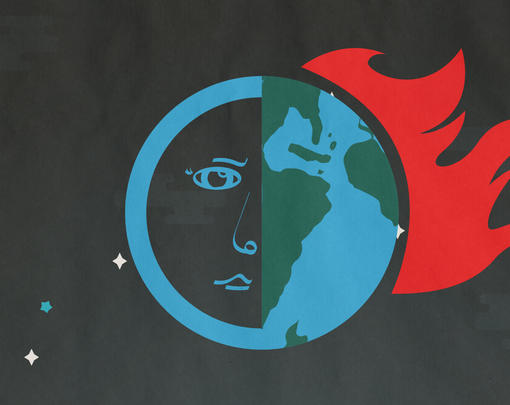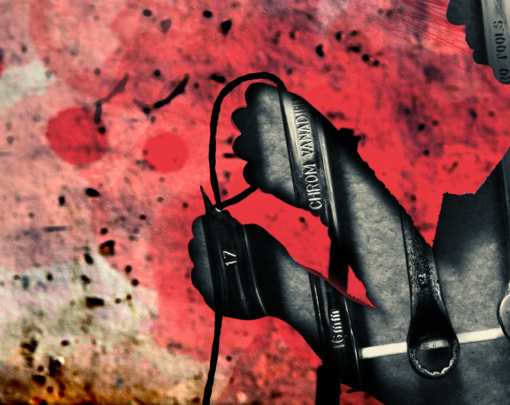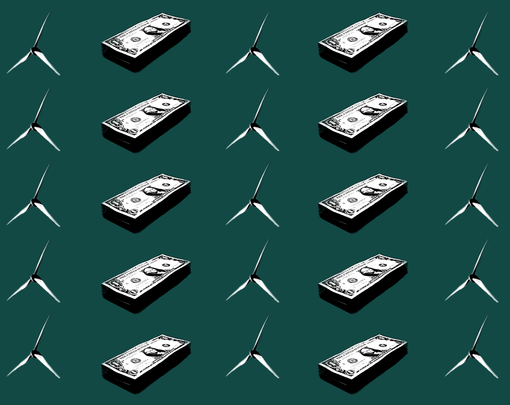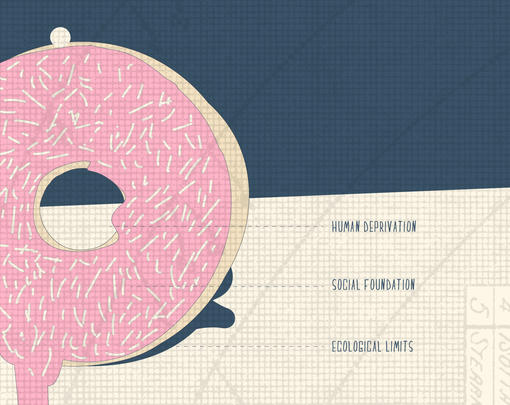This week, Adam is joined by Laura Flanders to discuss her new paper for the Next System Project on the “urgent necessity” of next system media. You can read Laura’s paper in full here. Be sure to follow The Laura Flanders Show to stay connected to powerful, independent journalism.
Subscribe to the Next System Podcast via iTunes, Soundcloud, Google Play, Stitcher Radio, or RSS.
Adam Simpson: Joining me today is Laura Flanders, an independent journalist that our listeners will no doubt recognize from The Laura Flanders Show (formerly GRITtv). She is the author of the books Bushwomen: Tales of a Cynical Species and Blue Grit: Impossible, Improbable, and Inspirational Political Change in America, and numerous essays and pieces in The Nation, YES! Magazine, and much more. Laura, thank you for joining me today.
Laura Flanders: Oh, I’m glad to be with you. Appreciate it, Adam.
Adam Simpson: We’re going to be discussing your new piece for The Next System Project called “The Next System of Media.” But before we get into that, Laura, I wanted to ask: you’ve interviewed a very wide range of guests in your career from new economy entrepreneurs to thought leaders both in academia as well as social movements, and I’m curious on the one hand how did you get into journalism? And on the other hand, what drives you to tell the stories that you tell in your career?
Laura Flanders: Well, thank you for the question. I got into journalism really growing up in the UK in an age of terrorism. So what else has changed? Now I’m in a different country, but we’re still being told to be afraid all the time of people who we call terrorists. In the ’70s in the UK and the early ’80s, it was the Irish Republican Army, the IRA, and the Irish Nationalists of Northern Ireland. Literally everywhere you went you were getting these messages and being warned and living in fear. And I wanted to go and find out for myself what was all this about. Maybe there’s another side to the story.
I ended up going to Northern Ireland. And sure enough, there was another side to the story. Even what the British called “The Troubles,” the Irish called “the trouble with Britain.” So it was at that time that I kind of got it—that history really is written by the winners, that there is more than one side to every story, and that media plays an absolutely decisive role not only in brokering our values, our aspirations, but also our relations with each other and what we think about the world that we live in. So I had a lot of journalists in my family. I won’t deny that that was part of it too. But that was really it. I went to Northern Ireland and realized, “Wow, the trouble with the British; the trouble with England. That’s me,” and it changed the whole equation. That’s really how I got into journalism.
Adam Simpson: Thank you for that, Laura. Before we get into your kind of vision for The Next System of Media, I want to talk about discussing, or diagnosing, rather, the current system of media. So I want to hear about your diagnosis of the problem. We’ve heard a lot over the past year or past two years maybe about problems with “mainstream journalism” and fake news and other kinds of ways of talking about this problem. There seems to be a perception that there is a problem on both sides of the political spectrum. But as someone who’s had a successful career as an independent journalist, I was wondering about your perspective in particular on the current state of the media landscape and its shortcomings.
Laura Flanders: Well, it’s a cliché, but it’s also true. It’s the sort of best of times and the worst of times. I don’t think Dickens would complain. You have, on the one hand, infinitely more capacity to tell a story than we had when I was beginning in the ’80s in the UK. If you have a piece of news you need to get out, in the old days you had to have some kind of media outlet that would receive your call or take your article or even just publish your letter to the editor. Today you have a camera more likely than not right in your cell phone, and you can broadcast breaking news live from the street. People all around the world, and we’ve seen people do it. So on the one hand, if you’re a person with a story on the street, there’s more ways for you to get it out than ever before.
On the other, it’s no easier really than it ever was to get paid. And we have a tremendous kind of cloud of content that is—much of it commercial, much of it toxic—hard to break through. And power in that new medium that was supposed to promise diversity and inclusion and democracy and open access, that system is seeing power concentrate just as it did in the old media. So that a few have tremendous access and tremendous commercial capacity and tremendous reach and impact. And a whole lot of people have to figure out how to fight through the kind of fog. So that’s, I think, where we’re at.
We’ve also got the insidious notion out there—that I think is eroding slightly—that when it comes to online media, most of us should do it for free. And that’s a big part of what we’re facing. I think there are more and more independent media outlets out there than ever, but just as many people struggling to make a living in that business. When it comes to mainstream, which is to say traditional media, we’ve seen a slash and burn couple of decades such that the last data that I looked at, there are about half as many people working in any kind of a newsroom—television, radio, or print—than were in the news in any kind of institution, which is to say getting paid, when I started out.
So a lot of possibility and promise not being delivered yet. But these are still early days. I think what I argue in the article is this is a transition time for media. And we need to take a series of actions to take our next system’s thinking into the media sphere and say, “Okay, well, what would the next system’s media look like?”
Adam Simpson: When you mentioned that the insidious notion that people that are writing online should do it for free. Part of it, and we might be jumping the gun, going already to the funding structures, but would you agree that to a lot of people, it probably feels free? There are these occasional pop-up ads, but more or less when you’re going around the internet it feels like a very free experience when you’re going to a news website. There might be a Google or Amazon curated ad in the corner. It’s very easy to feel like the hard work of journalism that you’re reading in a 1,000 words or so, there’s no paywall to it.
Laura Flanders: Exactly right. And I think not only does it feel free, it feels abundant, it feels as if there’s a lot of it. But what we’re actually seeing is a massive shift of resources from the makers of content, which is to say the journalists, the editors, the publishers, to the carriers of that content, the owners of the platform. It’s become a sort of landlord-peasant relationship where we provide a bunch of the crop and they make the money off the crop and give us some pennies back. It’s truly the next extractive industry. To the point where social media’s model is extracting from us our assets, our intelligence, our video, our photographs, our content, and then charging us for access to our own capital, if you will.
So you’ve got this extractive model that is both extracting assets from we the people and also impoverishing the media outlets that do still pay for reporting. Because that paid-for reporting, whether it’s done by The Guardian or the New York Times or websites like AlterNet or TruthOut or you guys, it appears all across the web on aggregated sites with slightly different headlines, slightly different photographs sometimes, but just for the sake of clicks. I spoke to somebody at AlterNet the other day who said they’ve seen the clicks on their website shrink but their content appear all across the web on other sites that are getting those clicks. So you have sort of extraction and theft, essentially, concentrating a whole lot of power in a few hands.
Adam Simpson: Well, before we get to your thinking on some alternative ways of funding these things and toward a less extractive form of media, just a few more questions about our current state. I noticed that in your paper you talked a lot about the values and the culture of the media we have today. And of course the current president is in more than a few ways kind of a product of this culture of media that we have. But I wanted to ask you directly, how would you characterize the values disseminated by mainstream media?
Laura Flanders: It’s fake. I mean, you want to talk about fake news, we are in a media culture that teaches us how to have fake friends, for heaven’s sake. This president is not just a product of the system, he’s part of producing the system. And one of the reasons he’s so telegenic is he literally was kind of television generated. If you think of Ronald Reagan, he was a kind of B-movie bit-player before he rode the CBS General Electric Theater. It was an advertising campaign that hosted, he was the host of what were essentially advertisements on behalf of General Electric with a little programming tied in. He rode those programs to the White House, to the governorship of California, then to the White House. Trump has ridden The Apprentice directly to the presidency. I mean, he was reaching over 14 seasons an average of 10 million viewers every week. So people felt like they knew him. And what was he getting us all familiar with? He was getting us all familiar with firing one another.
That media culture, those values of fake friends and clicks and ratings, likes, dislikes, and firing one another is a bad fit for a society where we actually have to learn how to live with one another and share a planet. We’re not learning sharing or collaborating or cooperating from a media that’s all about thumbs up, thumbs down, and voting people off the island. So we haven’t even touched on the consumerism values that we’re sold. But even at that level, I think the particularly insidious part of the Trump piece of our culture is that one. It’s that constant judging of one another, rating of one another, deciding whether what standing one has vis-à-vis another. It’s really counter to the whole drive to a caring society, a beloved community as Dr. King called it, the civil society, without which we really can’t survive.
So I think we’re in a real crisis point in terms of values, frankly. At the same time, as we see more and more people attracted to experiments that get them out of that relationship to one another. And that’s a lot of what we talk about on the TV show and that you write about at The Next System Project. There’s a lot of people who want to live a different way, but we’re not seeing that reflected in our media. And I think my question is, what would our world really look like if our media showed us as much collaboration as they do of competition; if we saw the possible instead of the horrible? So I do think it sits in the brain. We become what we see. Our possibilities are constrained by our imagination, and we go to media for help with our imagination. I think we need better media with better values to help stimulate more compassion, empathy, and creative thinking.
Adam Simpson: Right. When you talk about a media with values, it already brings to mind kind of one of the consistent criticisms, particularly by the Right but also by the Left as well in some cases, about the notion of bias and journalism. It’s almost a question of kind of your philosophy of journalism. But when people talk about bias, how do you understand the role of journalists as on the one hand the kind of dispassionate disseminators of facts versus an adversarial, antagonistic kind of watchdog type of institution? Is your ideal media one that would sincerely have no bias? Or one that would have an agenda vis-à-vis the kind of broader structures of power?
Laura Flanders: I think that we’re dreaming or we’ve drunk the Kool-Aid if we think there is such a thing as no bias in media. The bias that we see everywhere is bias towards corporate consumerism, at the very least. And most often it towards quite specific sorts of consumerism. Quite specific sorts of activity in terms of how we live our lives. So we see bias everywhere. I’m pro more bias. I think that we should have more explicit, more upfront, more clear forthrightness about the fact that we need a diversity of opinion.
Just to roll back a little bit. How do we come up with this idea of an unbiased media, of objective media? It progressed hand in hand from the era of the 1900s and 1800s and even the 1700s, the era of the pamphleteers and the muckrakers and the local newspaper. Maybe several local newspapers, one owned by this guy, one owned by that guy, and they would go out at it in the morning. The idea of objectivity grew with monopoly. If you were going to make a case that you only needed one newspaper in town or you only needed one television station or you only needed one nightly newscast, you had to simultaneously make the case that this one was going to be the only one you needed because it was fair and balanced. It was never true. It is not true now. And on the one level, I think that we need to say that we need diversity of opinion and be upfront about our biases.
On the other hand, at the same time, I think we need to say that journalism, I certainly think journalism performs a social good. That we are engaged in a public service. So if you call that “bias,” so be it. The bias is towards public service, the public good, advancing the good of society, and what our values and our activities need to be driven by that mission. So if that involves digging into corruption, holding the powerful accountable, the old A. J. Liebling, “The job of the journalist is to comfort the afflicted and discomfort the comfortable,” so be it. I do think that’s our job. We’ve turned things on their head. Somehow we have a media who consider themselves … their number one job is to get good access to the most powerful people in the world. I disagree.
Adam Simpson: Well, I want to ask you about this job that media has, the social good. As an independent journalist, did the way you think about your job and its importance change with the new president who I think most people will kind of say has been … Not to let Obama off the hook, but I think this may be perceived as a more precarious time for journalism and democratic institutions more broadly. As an independent journalist, did this view of your role change on November 8th last year?
Laura Flanders: It did not. My role didn’t change. My sense of urgency around the institution of journalism and re-asserting some values changed. Because Donald Trump campaigned for two years by targeting the media. You went to a campaign rally, the press would be in a corner, he would begin, and I’ve had many reporters describe this to me, by getting the attention of the crowd, pointing to the journalists, and saying “Bad people. Very bad people. The worst people in the world.” Now that’s just whipping up a mob. And we saw that mob behavior target particularly journalists of color, women journalists, and anyone that stood up to Trump. And I’m not talking just about bad looks or boos and hisses. We’re talking about harassment, physical violence, people being dragged out of press meetings, out of public gatherings. I mean, it became dangerous to be a journalist.
What we then saw is some of our most powerful media in the world, media that have not been our friends when it comes to reporting on war, reporting on grassroots organizations, reporting on social justice, reporting on social movements, media like the New York Times, the Financial Times, the Wall Street Journal, MSNBC, the networks, some of the most powerful media in the world say that they were the victim. That therefore under attack, they needed more power and support. And while I was excited to see people subscribing to papers and understanding the value of having a newspaper subscription, I also saw yet again the kind of eclipsing of the very media that had been out there covering the roots of this kind of white supremacist mob that Trump was able to feed into. And frankly, the roots of the kind of sense of grievance that Trump was able to plug into.
It wasn’t the New York Times or the Wall Street Journal or CNN who had been covering across the country the militia movement, the Black Lives Matter movement, the Occupy movement. Eventually they cover it, but as a dear friend of mine used to say in independent media, “it’s independent media who brings issues to the boil, and it’s the mainstream that inhales the steam.” So once again we saw journalists under attack, and then the people moving into the spotlight to say protect us, fund us, help us, were not the frontline of people who were under attack.
My sense of urgency about the need for us to protect the journalists who are the Ida Tarbells and Ida B. Wellses of today, the muckrakers of the 19th century, the people that really went up against big power when it wasn’t comfortable, when it wasn’t safe, going up against United Steel or going up against the Klan. My urgency about the need to create a circle of safety around those people and those institutions certainly grew. But in terms of my job, I’m pretty clear about my job, which has been to keep raising questions about what’s possible. And no less urgent a question than what’s possible in this media world.
Adam Simpson: Right, right. Well, I want to turn to your kind of alternative vision for next system media. Inevitably, when we talk about alternative forms of media, on some sense we have to talk about alternative forms of funding this media. On the one hand, we talked a little bit about the funding structures, the click bait, the kind of corporate ad-driven types of journalism. What kind of funding and ownership models do you think would be a good cure to this kind of ad-driven media system that has kind of emerged today?
Laura Flanders: Well, I’m going to give a very Gar Alperovitz kind of an answer, which is, “We need many!” We need to try many possible experiments and see which ones work. So that being said, obviously there’s not one, I think there are many. There are a couple of core things. And just to run through a few things that I mention in the article. I talk about state funding. There is a place for government support for public interest media. Yet at the same time, we don’t want state control.
So when we’re talking about public media, we have to think about how do you get public support without public control? Again, going back to my experience in the UK, the BBC is a very wonderful organization in many, many ways. It has reporters all around the world. It still covers the world. That’s what you get from a colonizing nation. It knows there are parts of the world that are different, and has relations in those parts of the world. But if you happen to live on the colonized side of that equation, the BBC coverage has not always been your friend. So my friends in Northern Ireland would say there was a lot wrong with BBC coverage of what was happening in their streets.
So how do you have public support without public control or government control? I think I mention in the piece, Dean Baker at the Economic Policy Institute, he has said years ago, he said: Why don’t we have a check-off on our taxes where people could dedicate a certain amount of money? Everybody would get the same, say $200 to the media outlet of their choice, the nonprofit media outlet of their choice. So you’d be using the federal taxation mechanism to generate a pool of money that would be directed by the individual, not by the state. So that’s one sort of idea. Another one if you want to stick within the commercial model is, if all of our new economy sector businesses, if all the co-ops, and the ESOPs, and the public banks, and credit unions, next generation energy utilities, municipalities, if they all place their advertising dollars, their underwriting dollars with values-aligned media, media that was open to the kind of new ideas and new ways of thinking that they want to see, then we would have enough money for independent media, thriving community media everywhere across the country.
So another argument that I’ve made is if the old economy industries supported the old economy media, we do need the new economy businesses to support the new media. Because we’re talking about culture shift. And the Right have very well known how do you shift culture. They’ve spent decades funding right-wing talk radio, for example, influencers on TV, radio, and in print who never made a dime. Rush Limbaugh didn’t make a dime for a decade, but his underwriters understood that if he could vilify taxation and vilify government regulation day after day, hour after hour for a decade, they would see a culture shift that would benefit their bottom line. And that’s what they invested in.
Our folks need to invest in the same sort of way. But I do think we need two tracks. We need commercial support. And we need a place in our media spectrum for public interest, publicly funded media that is not driven by underwriting or commercial interests. We need both. At the root of the second is a values commitment that public media is a social good that needs to be considered a critical shared asset if we want to have a democracy. Because we’ve just seen what happens if you leave your democracy in the hands of corporations who care about nothing other than profit. You end up with a Donald Trump. Because, hey, he’s good for ratings!
Adam Simpson: In your mind, how would you juxtapose like just the idea of a media that’s embedded within the new economy space in terms of what that form of journalism, what those stories look like? How do you imagine the difference between that media model embedded in the new economy and the media model we have today, which maybe we’ll say embedded in the old economy?
Laura Flanders: Yeah. I mean, for one thing you’d have more than a Wall Street report at the end of every newscast. You should have a Main Street report. How many people got hired? How many people got fired? How’s the local business doing? How do we assess the health of the economy should not be simply according to the profits going to shareholders of a handful of very powerful corporations. If we were to tell the news, just purely the news from the point of view of the human happiness index or the metrics that are constantly being talked about in the pages of the Next System Project, we could have a very different kind of a newscast every evening.
What if we talked about in the weather report we talked about climate change? What if we talked about externalities not as externalities but as costs that we, the community, are paying: Well, this week we paid this much money; this town paid this much money to pave a highway out to the big box store that’s going to be costing this kind of a bottom line that’s going to affect the possibilities for the library’s budget. I mean, we sometimes embed it in the news as a special interest kind of a story. But we very rarely integrate it as a sort of normal component of our news. The thought that increasing profit share at the expense of laying off lots of workers is going to have a personal cost not just on those workers, but on the community as a whole.
I think that listeners to this podcast can think of a gazillion examples. But the business that leaves the town, the story we’re looking at, the reporting that we’re looking for is the sort of reporting that could avoid that. That could lift up the possibility of local ownership of that business. And not just once in a while, as I said as a kind of human interest “Oh, isn’t this a wacky idea that they all had.” But rather, as part of our economic reporting.
I think it’ll happen. I think it is happening. But the metrics that we want to bring to this have to do with not just a successful business and money being made, but healthy communities, living wages, livable towns, and a quality of life that sustains pleasure as well as profit. Sustains people as well as bank accounts. So I think that there’s a world of things we could be reporting on differently. At the very root of it, though, is a commitment to have some more people do some different sorts of storytelling.
Adam Simpson: And the other issue, that I thought about when I was reading your paper, with our current system is how the very large, the “big fish” of the media industry are gobbling up the little fish, particularly as it relates to local news coverage. I was wondering if you have perspectives on how kind of more locally rooted news organizations, what you imagine for them within the next system of media?
Laura Flanders: Well, it’s very interesting. We just did a bunch of interviews on this subject for the TV show the Laura Flanders Show. And one of the people that I interviewed was Joe Amditis from the Center for Cooperative Media in Montclair, New Jersey. It’s based at the Montclair University. And they are building in a sense a kind of news commons across local media all across New Jersey. So where you still have some legacy small media, to shore them up they are working on some collaborative projects, sharing data, sharing source materials, sharing photography in some cases. Still publishing their own stories, but carrying increasingly also the stories of their sister papers. And in some cases actually doing collaborative reporting.
There are even some other experiments happening, sort of the next generation of our community access television experiment to do some locally funded local news. Which is to say, creating a pool of funding based on local tax revenue that can be used specifically to cover that region, to cover that locale. So that public interest journalism could be seen as one of the municipal expenses, as it were, that could be decided upon how that money is spent in a participatory budgeting structure. Like, “How do we spend our media dollars? Well, we want to hire the best investigative reporter to look into whether making a pitch for this Amazon headquarters would be good for our town.” No one’s ever going to do that from the big papers.
But we could do it. We could hire a great reporter for $50,000 for a year to dig into that story. I think there are lots of different ways that we could use some of the models that we’re already coming up with to address our media challenge. But we need to see media as both a means to an end… Not only sort of part of our picture of the end that we’re aiming for or the new economy, the new community that we’re looking for, but the means to that end as well. We need media to help us get there. So we have to put it up front and center.
Adam Simpson: Right, right. Well, my final question is about inequality. In your paper, citing the work of the Institute for the Future’s Marina Gorbis, you noted that inequality plays a role in the shortcomings of prevailing corporate media structures. And I was hoping you could elaborate on your understanding of this connection between these two problems.
Laura Flanders: Yeah, she’s so interesting. She just sort of said you can’t really solve the media problem without addressing the inequality problem. And I think it is chicken and egg. Like we need media that addresses inequality to reduce the inequality that gives us unequal media. But I think the way that I understood it was with so much concentration of wealth in so few hands, we are seeing an extravagance of media power in those same few hands. It’s the same problem that we’re seeing with “too big to fail” banks. We’ve kind of got too big for our democracy media. Media that is so reliant upon so few sources that they literally can’t … As a journalist, you need to have the freedom to chomp down on the hand that feeds you. But if that hand that feeds you is one of just two in your area…
Just, again, so imagine journalism once upon a time you could leave the paper of one town in a huff, the paper at one end of town in a big huff, pick a fight, stand by your principles, walk out, and go look for a job at the other paper at the other end of town. Now, if you get laid off or if you try to make a fight or if you try to stand up for something, there’s no place else for you to go. And in the same way our broadcast media is reliant on a few corporations for an outsized part of its advertising dollars. And online we have, because a few of us have a lot, and a lot of us have not very much, we have a few of us supporting powerful media and what becomes powerful media. But then a whole lot of other people who are constantly, I don’t know about you, but constantly being crowd-sourced from. It feels like a big crowd without a whole lot of resources. So we might be able to pay our minimum pledge.
But I will say this: The radio stations that I’m most familiar with in the community and grassroots radio networks, some of them critical stations in heartland states that are the only progressive or independent voice in a community that is otherwise besieged by talk radio from the Right, these stations that were always dependent on fairly small-dollar contributions are exactly the ones who have taken a hit as the middle class has shrunk. And we’ve seen a growing pool of people with not much, and a tiny shrinking pool of people with an awful lot. So I think that’s what she was getting at. That our democracy is hopelessly skewed by inequality. And solving the media problem is critical, but it will be hard to do without addressing inequality. I would argue we need to do it in order to address it. But certainly the two go hand in hand.
Adam Simpson: Right, right. Well, Laura, thank you for sitting down with us today and talking about your new piece. For our listeners, you can read Laura’s article here, and check out the Laura Flanders Show here. Laura, once again, thank you for joining us today. And we’ll see everyone next time.
Laura Flanders: Thank you very much, Adam. Appreciate it.


